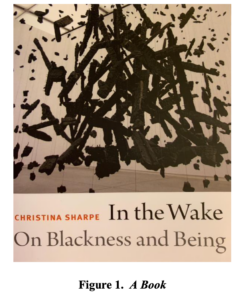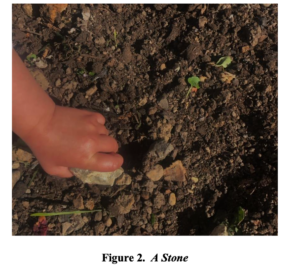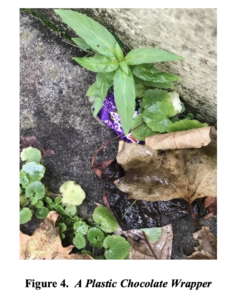Our next research group seminar, titled "Posthuman Object Pedagogies: Thinking with Things to Think with Theory for Innovative Educational Research," will be delivered by Hannah Hogarth, Carol Taylor, Elisabeth Barratt Hacking, and Eliane Bastos on Thursday, 14 March 2024, from 11-12, online via Teams.
Overview:
This interactive webinar offers insights into our work with Posthuman object pedagogies. We ask the question: What can attending to the particular and significant effects and affects of objects produce and enable for educational research and practice? The session will provide an invitation to experiment with thinking and unthinking to activate new relations between thought, matter and action. Inspired by feminist new materialism, and particularly Jane Bennet’s concept of ‘thing power’ (2010), we work with several objects, following their ‘thingly scent’ to open educational practice to the multiplicity of unforeseen rhizomatic directions. We place vitality and potentiality at the heart of educational research and practice and consider ‘the curious ability of inanimate things to animate, to act, to produce effects dramatic and subtle’ (Bennett, 2010, p.6). We invite you to bring along an object that has educational resonance for you and join us in taking our object-relation inquiries further so that we can think-with objects to reimagine education for better futures.
The article this presentation draws on:
Taylor, C. A., Hogarth, H., Barratt Hacking, E., & Bastos, E. S. R. (2022). Posthuman Object Pedagogies: Thinking with Things to Think with Theory for Innovative Educational Research. Cultural and Pedagogical Inquiry, 14(1), 206. https://doi.org/10.18733/cpi29662



Article Abstract
Educational practices and learning processes are entangled with multitudes of objects but these objects are so often disregarded as mundane background and thingified – positioned as dull, inert matter, unnoticed, and made subserviently serviceable in order that the proper business of educating the human can go on. Such an education, with its orientation to reason, logical argument and the mind, silences objects and produces humans as docile bodies. This article develops posthuman object pedagogies to contest the ontological positioning of objects as inert and dead and, instead, attend to the quiet but powerful work they do (Taylor, 2013, 2017). Using Barad’s (2007) and Haraway’s (2016) posthumanist materialist ontology of what Bennett’s (2010) calls thing-power the article proposes a practice of thinking with things as a means of thinking with theory. We illuminate this practice through four object encounters. The insights from these encounters provide the basis for developing posthuman object pedagogies which re-evaluate understanding of the work objects do as intra-active agencies and in recasting educational research. As four educators at different career stages, we develop posthuman object pedagogies to enable us to do educational research otherwise.
Speaker(s) Bio:
Hannah Hogarth, Carol A. Taylor, Elisabeth Barratt Hacking, and Eliane Bastos are founding members of the Get Up and Move! Collective. We have worked together on several research projects with shared research interests including walking methodologies, research-creation, posthuman and feminist new materialist philosophies and nature relations.
Hannah Hogarth is a final year doctoral student whose post-qualitative inquiry explores the possibilities of/for childhoodnature play in an urban forest school.
Carol A. Taylor is Professor of Higher Education and Gender at the University of Bath. Her research focuses on the entangled relations of knowledge, power, gender, space and ethics in higher education and utilizes trans- and interdisciplinary posthumanist and feminist new materialist theories and methodologies.
Elisabeth Barratt Hacking is Deputy Head of Department and co-lead of the University of Bath interdisciplinary research beacon: ‘Living Well now and by 2050.’ Elisabeth’s research focuses on ecosocial justice and childhoodnature; she has published widely in the fields of environmental and climate change education and global citizenship education.
Eliane Bastos is a doctoral student whose research explores children’s ocean literacy, and child-ocean relations, with children from a coastal primary school in England.
Respond